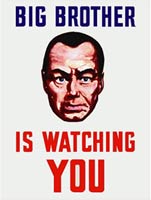His key points were:
- MySpace is slow and buggy (agreed)
- MySpace does not filter it's content (yep)
- MySpace is centered around streaming not downloading (nope)
- MySpace is not loyal to music (yep)
- You cannot "break" a band on MySpace. (depends- see below)
- "To improve and drive the music sphere we need people who really understand how the word is spread, how people USE music, how to TURN PEOPLE ON to music." (kinda)
- MySpace is kiddieland for the "gymnasium and punch" set. (yes)
- MySpace is more about T&A than really a music community. (yes)
- Bob's too old to figure MySpace out and plenty of discovery of new talent goes on. (no comment)
- MySpace does allow downloading, it's the bands (and labels) who make the decision. (right)
- MySpace isn't supposed to be the second coming, but is effective at allowing joe schmoe band to network with fans they would never ever have reached otherwise. (true)
- The kids love it and use it like mad, and seem to find what they want. (uh huh)
- The direct two way connection of bands to fans is priceless. (si!)
- "The problem is, people don't USE music. Music nerds USE music. Everyone else just dances and fucks to it." (affirmative)
The CroMags, Breakdown, Sick Of It All, Raw Deal, Absolution (among many many others) built a pretty strong followings on a demo tape. Most of these cassette only releases were really 2 track live in studio performances, mixed through a board. The bands (or their girlfriends) spent many hours dubbing cassette after cassette on their home machines, usually one or two at a time and selling them for $3 a pop at shows and at stores ike Bleeker Bob's, Some Records, and Venus. Each of the bands sold thousands of these cheaply produced demos, and the recirculation of those demos provided the backbone to the scene- completely under the radar of the "real" music business.
Today, MySpace (and to a lesser extent bulletin boards) are virtual extensions of the same DIY mindset. Like the demo of years gone by, it's a great way for a young alt/punk/core band to find fans. But like any tool- it is what you make of it. Going out and randomly adding friends (i.e. spamming) isn't going to do much to promote your band. But posting your music and letting your fanbase grow naturally is. Both Blackout! bands Grace Gale and The Fire Still Burns have had some pretty solid success on MySpace- because they follow a sensible methodology and really use it as a hub for band to fan contact.
I get what Lefsetz is saying about how (on a pop level) MySpace is not the Panacea for the ailments of the music business. Trying to market a pop record on a social network is counterintuitive to what pop(ular music) is. But from down here in the punk rock trenches, the social networks have been pretty good to us simply becuase it's a natural extention of what we've always been doing.
There's really one distinct difference between then and now that the internet cannot address. The "social network" of the 80's was an actual living, breathing thing- CBGB every Sunday (sometimes Saturday), maybe a Rock Hotel show at the old Ritz. To participate, you had to show up, not just "click in". You had to be brave enough to walk down the streets that your mom always told you to be careful of. You had to meet people and get yourself out of (or into) situations that were often pretty dangerous. That's the visceral part of it that chatroom superstars and snipers do not get.
